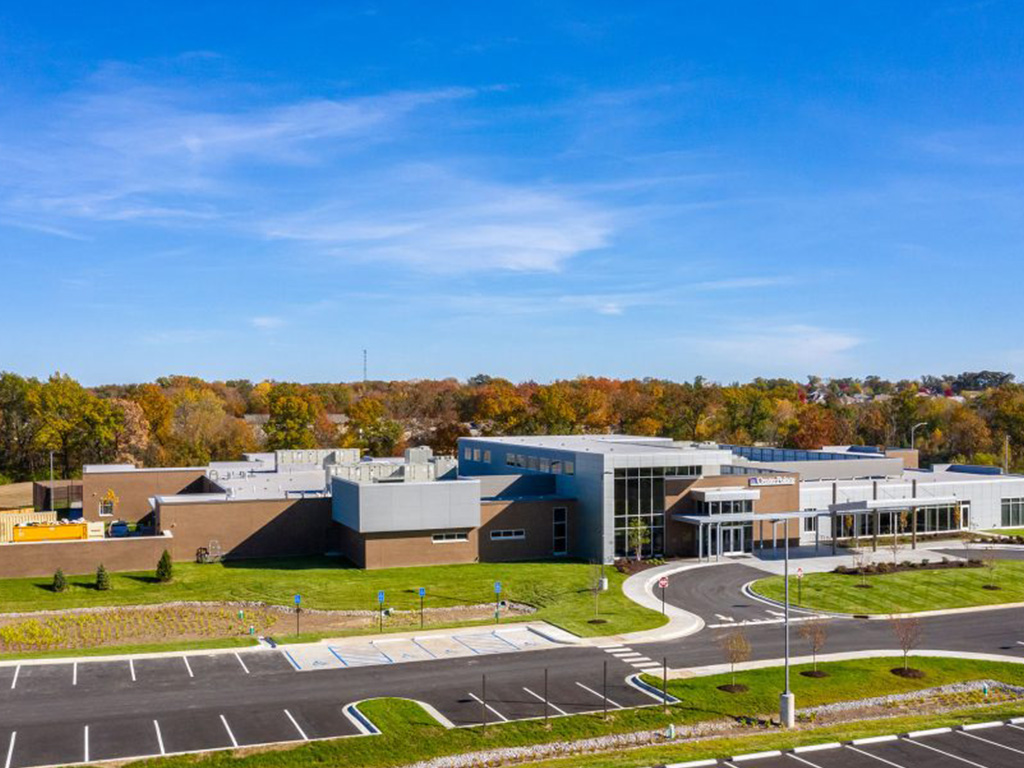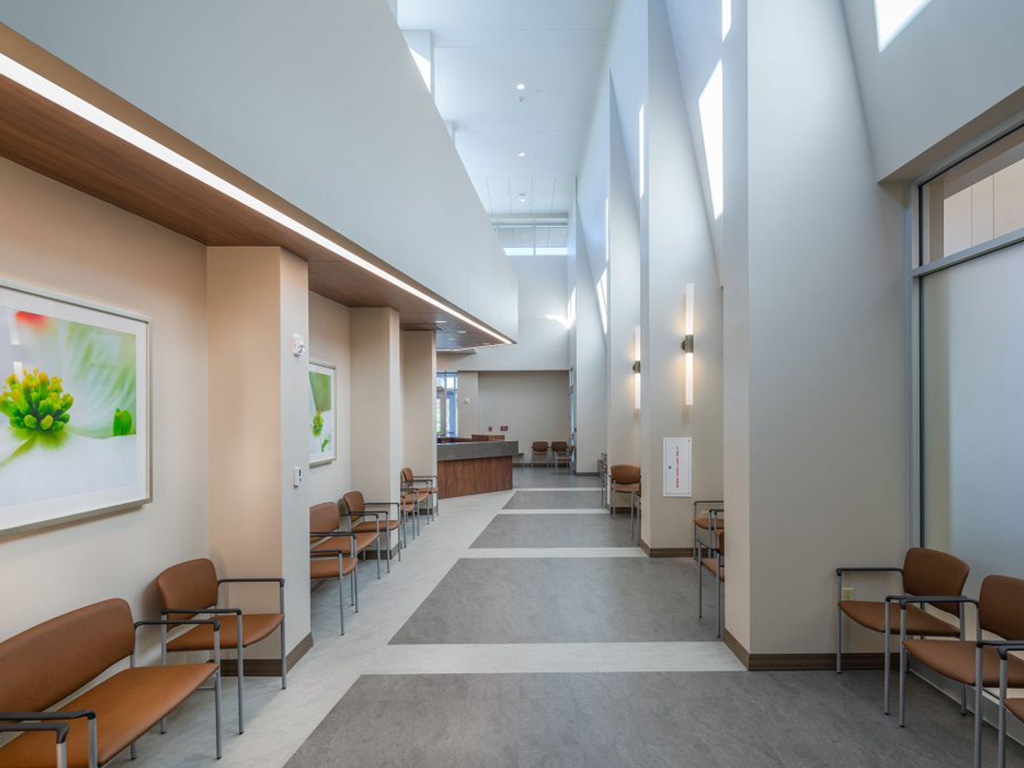Attention-deficit/hyperactivity disorder (ADHD) is an often misunderstood mental health concern that affects millions of children, adolescents, and adults.
People who have this disorder may struggle in school, at work, and in other important areas of life. This may include experiencing considerable distress in the context of their relationships with friends, family members, colleagues, and romantic partners.
The good news about ADHD is that it is a treatable disorder. When a person receives appropriate professional care from a trusted provider such as CenterPointe Hospital of Columbia, they can make sustained progress toward improved health.
Signs & Symptoms of ADHD
According to the fifth edition of the Diagnostic and Statistical Manual of Mental Disorders (DSM-5), ADHD is characterized by two types of symptoms: inattention and hyperactivity or impulsivity.
The following are examples of ADHD symptoms that fall into the inattention category:
- Making frequent careless mistakes in school or at work
- Failing to pay attention to details
- Having difficulty maintaining focus and concentration
- Neglecting to follow instructions and finish tasks
- Struggling with organization and time management
- Avoiding tasks that require sustained focus or mental effort
- Daydreaming, becoming lost in their own thoughts, or being easily distracted
- Frequently losing important items such as keys, wallet, cellphone, and glasses
- Forgetting to tend to basic responsibilities such as paying bills, keeping appointments, or doing household chores
Examples of ADHD symptoms that would be categorized as hyperactivity or impulsivity include the following:
- Fidgeting, tapping their fingers or feet, and having difficulty sitting still
- Being unable to remain seated when expected to do so, such as in an office or classroom
- Talking excessively
- Exhibiting a degree of restlessness that is inappropriate for their age and developmental level
- Being unable to quietly engage in hobbies or other leisure activities
- Seeming to always be on the go, running late, or difficult to keep up with
- Finding it difficult to wait their turn, such as when in line at a store or when wanting to be called on by a teacher
- Blurting out answers before the full question has been asked
- Interrupting conversations or intruding on activities they were not invited to join
To be accurately diagnosed with ADHD, children and most adolescents must exhibit six or more symptoms from each of the categories listed above. For older adolescents and adults age 17 and older, five or more symptoms from each category are required.
For people of all ages, these symptoms must have persisted for a minimum of six months, and they must have a direct negative impact on their academic, occupational, or social functioning.
ADHD Statistics
The following ADHD statistics are from the U.S. Centers for Disease Control and Prevention (CDC):
- About 6 million children and adolescents in the United States (or about 9.8% of young people ages 3-17) have ADHD.
- The rate of ADHD is higher among boys ages 3-17 (13% of whom are diagnosed with this disorder) than among girls in the same age range (6% of whom receive ADHD diagnoses).
- About 60% of young people who have ADHD have a co-occurring mental or behavioral health disorder.
- More than half (52%) of children and adolescents who have ADHD have problems with conduct or behavior.
- Experts estimate that about 33% of children and adolescents who have ADHD also have an anxiety disorder, and about 17% have a co-occurring depressive disorder.
- According to a national parent survey, about 77% of children and adolescents who have ADHD are currently receiving treatment for this disorder.
- About 90% of children and adolescents who were diagnosed with ADHD received some level of support from their schools.
Although ADHD most frequently occurs in children and adolescents, the DSM-5 reports that about 2.5% of adults also have this disorder.
ADHD Causes & Risk Factors
Attention-deficit/hyperactivity disorder is not the result of a single cause. However, researchers have identified several factors that can increase a person’s risk for developing this disorder. Potential risk factors for ADHD include the following:
- Extremely low birth weight
- Being born to someone who smoked or drank alcohol during pregnancy
- History of child abuse and neglect
- Exposure to certain toxins or infections
- Having a parent or sibling who has ADHD
- Personality traits such as reduced behavioral inhibition and novelty-seeking
- Nutrition deficiencies
- Genetic variations
- Being male
Potential Effects of Untreated ADHD
People who need but do not receive professional treatment for ADHD may have an elevated risk for physical, psychological, and social harm. Potential negative effects of untreated ADHD include the following:
- Attendance problems in school or at work
- Low academic achievement
- Trouble finding and keeping a job
- Difficulty establishing financial independence
- Frequent conflicts with friends, family members, and colleagues
- Being teased, bullied, or ostracized by peers
- Problems forming and maintaining healthy relationships
- Substance use and addiction
- Development of co-occurring mental health disorders
- Being injured, arrested, or jailed due to impulsive behaviors
- Increased risk for motor vehicle accidents
- Social isolation
Untreated attention-deficit/hyperactivity disorder can be a source of considerable distress. But it is important to remember that ADHD is a treatable condition. When a person who has ADHD receives the proper type and level of care, they can experience significant improvements in their quality of life.
Levels of Care for ADHD Treatment
At CenterPointe Hospital of Columbia, a person may receive ADHD treatment at the following levels:
- Inpatient treatment – We offer inpatient care via age-appropriate units for children ages 5-12, adolescents ages 13-17, adults age 18 and older, and senior adults. At the inpatient level, our general goal is to help each person achieve the level of stabilization that will allow them to return home or step down to a lower level of care. Features of inpatient treatment at our hospital include structured daily schedules, multiple types of therapy, comfortable rooms, and round-the-clock supervision.
- Intensive outpatient program (IOP) – Our IOP serves adolescents ages 13-17 and adults age 18 and older. Patients may step down to our IOP after completing inpatient treatment for ADHD, or they may begin treatment at the IOP level. While a person is in our IOP, they will attend treatment three days each week, with each treatment day including three hours of therapy. Groups are the main method of treatment at the IOP level, though other therapies and services may also be offered. Most patients remain in our IOP for four to six weeks, depending on their progress and continued needs.
- Traditional outpatient care – Traditional outpatient care at our hospital consists of individual sessions with either a psychiatrist or a nurse practitioner. Sessions may be scheduled at the frequency that best meets each person’s needs. As with our IOP, patients may begin treatment for ADHD at this level, or they may step down to outpatient treatment from a higher level of care.
Types of Treatment for ADHD
Treatment for ADHD often involves a combination of therapy and medication. Prescription medications can alleviate some of the symptoms of ADHD, while therapy can help a person learn to manage the remaining symptoms.
The therapies and services a patient receives can depend on a variety of factors, including their age, the types of symptoms they have been experiencing, if they have a co-occurring disorder, and which level of care they are currently in. With those factors in mind, a person’s ADHD treatment at our hospital may include elements such as the following:
- Basic medical care
- Medication management services
- Cognitive behavioral therapy (CBT)
- Dialectical behavior therapy (DBT)
- Acceptance and commitment therapy (ACT)
- Transcranial magnetic stimulation (TMS) therapy
- Motivational interviewing
- Individual therapy
- Family therapy
- Process and psychoeducational groups
- Art therapy
- Music therapy
If a person is receiving treatment for ADHD and a co-occurring substance use disorder, their care may also include detoxification and 12-Step support.
How to Find the Right ADHD Treatment Center
When you are seeking ADHD treatment for yourself or your child, it can be difficult to identify the right provider. When you are speaking with the representatives of any hospital or other ADHD treatment center you are considering, don’t be afraid to ask questions about the facility, staff, treatment options, or any other aspect of care.
Getting answers to questions such as the following can help you make the right choice:
- What level or levels of care does the ADHD treatment center or hospital offer?
- Does the facility serve patients from multiple age groups in separate units?
- Does the center develop personalized treatment plans for each patient?
- How does the hospital’s treatment team determine which services are right for each person?
- What are the educational backgrounds, qualifications, and experience levels of the professionals who provide ADHD treatment?
- Does the center or hospital offer family therapy?
- How does the center or hospital decide how long a person needs to remain in treatment for ADHD?
- What types of discharge planning or aftercare support does the hospital offer?
- Does the ADHD treatment center accept insurance? If so, what types?
When you contact CenterPointe Hospital of Columbia, the professional who takes your call will be happy to answer these and any other questions you have about our ADHD treatment services. We are committed to ensuring that our patients and their family members have the information they need so that they can make the best decisions for themselves or their loved ones.
This content was written on behalf of and reviewed by the clinical staff at CenterPointe Hospital of Columbia.














